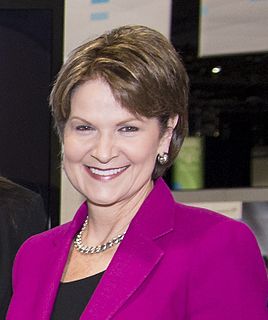A Quote by Susan Cain
In the first study, Grant and his colleagues analyzed data from one of the five biggest pizza chains in the United States. They discovered that the weekly profits of the stores managed by extroverts were 16 percent higher than the profits of those led by introverts—but only when the employees were passive types who tended to do their job without exercising initiative. Introverted leaders had the exact opposite results. When they worked with employees who actively tried to improve work procedures, their stores outperformed those led by extroverts by more than 14 percent.
Quote Topics
Actively
Biggest
Chains
Colleagues
Data
Discovered
Employees
Exact
Exact Opposite
Exercising
Extroverts
First
Five
Grant
Had
Higher
His
Improve
Initiative
Introverted
Job
Leaders
Led
More
Only
Opposite
Passive
Percent
Pizza
Procedures
Profits
Results
States
Stores
Study
Than
Those
Tried
Types
United
United States
Weekly
Were
Without
Work
Worked
Related Quotes
Introverts almost never cause me trouble and are usually much better at what they do than extroverts. Extroverts are too busy slapping one another on the back, team building, and making fun of introverts to get much done. Extroverts are amazed and baffled by how much some introverts get done and assume that they, the extroverts, are somehow responsible.
While there are relatively few extreme introverts or extroverts, most of us lean in one direction or the other. If we lean more toward introversion, we'll generally prefer less social activity than more extroverted people. One inclination is not 'better' than another, but our culture can make it seem as if extroverts have a social advantage.
But of course, now we're told we're in recovery but this sure doesn't feel like a recovery to more than 9 percent of the Americans out there who are unemployed, or the 16 percent of the African-Americans, 11 percent of Hispanics in the same position, or the millions who can only find part-time work or those who have even stopped looking for a job.
I’ve seen how important this concept is in business. To be truly successful, companies need to have a corporate mission that is bigger than making a profit. We try to follow that at salesforce.com, where we give 1% of our equity, 1% of our profits, and 1% of our employees’ time to the community. By integrating philanthropy into our business model our employees feel that they do much more than just work at our company. By sharing a common and important mission, we are united and focused, and have found a secret weapon that ensures we always win.
Many of the wonderful achievements of the 20th century were the result of the pursuit of profits. Unfortunately, demagoguery has led to profits becoming a dirty word. Nonprofit is seen as more righteous, particularly when people pompously stand before us and declare, 'We're a nonprofit organization.'
Forests are breaking out all over America. New England has more forests since the Civil War. In 1880, New York State was only 25 percent forested. Today it is more than 66 percent. In 1850, Vermont was only 35 percent forested. Now it's 76 percent forested and rising. In the south, more land is covered by forest than at any time in the last century. In 1936 a study found that 80 percent of piedmont Georgia was without trees. Today nearly 70 percent of the state is forested. In the last decade alone, America has added more than 10 million acres of forestland.






































